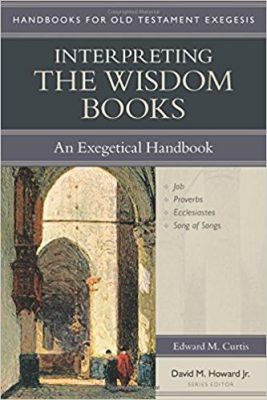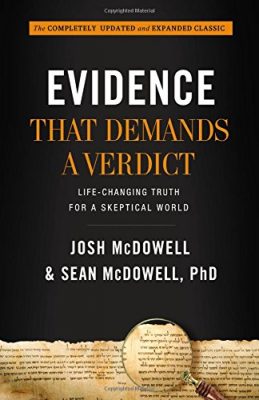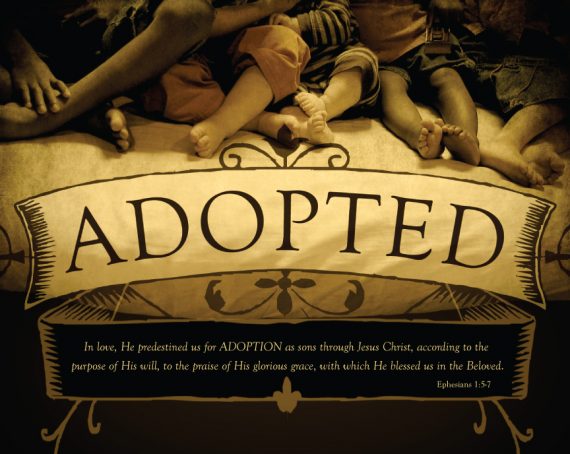In Ephesians 1:7, Paul writes that “In Him we have redemption through His blood, the forgiveness of sins, according to the riches of his grace.”
I have written previously that the blood of Jesus does not purchase forgiveness of sins for us from God. But does Ephesians 1:7 refute this idea? No. In fact, it supports it. Let me show you why.
Ephesians is a book that has been widely misunderstood, especially in light of what it teaches about salvation. Some of my sermon manuscripts on Ephesians might help clarify the book as a whole, but most of the main ideas can also be found in various entries in my Gospel dictionary.
The Basic Summary of Ephesians
 The basic message of Ephesians is that due to religion, humans have lived in rivalry and violence with each other since the foundation of the world, but now, in Jesus Christ, we have been shown a new way of living life so that all the hostilities can now cease.
The basic message of Ephesians is that due to religion, humans have lived in rivalry and violence with each other since the foundation of the world, but now, in Jesus Christ, we have been shown a new way of living life so that all the hostilities can now cease.
There is still a struggle, but it is not against each other, but against the forces which seek to drag us back into rivalry, accusation, and scapegoating violence.
The Introduction to Ephesians
Paul introduces some of these themes with one long sentence in Ephesians 1:3-14.
Leading up to Ephesians 1:7 where Paul refers to redemption through the blood of Jesus, it is important to also understand what Paul means when he writes about adoption and election as these words also form a foundation for Paul’s ideas about the blood of Jesus. These words are also carefully defined in my Gospel Dictionary online course.
The basic idea in Ephesians 1:3-14 is that God made us His heirs so that we can have the resources necessary to fulfill our purpose and role within His family.
So what is Paul teaching in Ephesians 1:7?
It is in the context of these ideas that Paul mentions redemption through the blood of Jesus (Ephesians 1:7).
Redemption is when God takes something that is already His, and buys it so that it is twice His. So redeemed us, or bought us back, through His blood.

When Paul writes about Jesus redeeming us through His blood, however, we must not think that Jesus was paying off God or Satan with His blood. It is not as though there was a debt of sin to God or to Satan which could only be paid with the blood of Jesus. This is not a biblical idea. (We’ll look at Hebrews 9:22 next week.)
So what did Jesus redeem us from? What did He buy us back from?
The redemption that Jesus accomplished through His blood was a rescue or deliverance of humanity from humanity.
We had enslaved ourselves to an endless cycle of sacred violence and the spilling of blood in God’s name.
By dying as He did, Jesus exposed the myth of redemptive violence and the lies of sacred violence for what they were so that we can be redeemed, bought back, or rescued from this endless cycle of violence and bloodshed once and for all.
We know that this is what Paul means because he explains the phrase “redemption through His blood” with the phrase “the forgiveness of sins.”
The two phrases explain each other, so let’s look at the forgiveness of sins first.
The Forgiveness of Sins
As we discussed previously, there are two main types of forgiveness sin the Bible, one that is free and one that is conditional. The type of forgiveness Paul mentions here is the conditional forgiveness (aphēsis). A good synonym for this type of forgiveness is “release.”
Furthermore, the term “sin” in the Bible primarily refers to the sacred violence that has enslaved all of humanity in a never-ending cycle of rivalry, accusation, and scapegoating sacrifice. I defend this idea in my book, (#AmazonAdLink) Nothing but the Blood of Jesus.
So when Paul writes about “the forgiveness of sins,” he is referring to our release from the cycle of sacred violence.
And since this phrase explains or defines the first phrase about the redemption through the blood of Jesus, it too can be understood similarly.
Redemption through His blood
Jesus redeemed us, bought us back, rescued us, released us from the never-ending cycle of sacred violence and sin by subjecting Himself to it. He went to the cross and shed His blood for us, not as a payment to God or to Satan, but as a revelation to humanity about the sin which had enslaved humanity since the foundation of the world.
Now that we have this redemptive revelation through the sacrificial death of Jesus, we are able to live in a new way with other human beings.
We can now live at peace, no longer subjecting ourselves to the ways of death and violence founded upon religion, but instead follow Jesus by faith into the ways of love and grace.
If some of this sounds similar to what Paul writes in Ephesians 2, that’s because it is. Paul takes this theme of how humanity has been delivered from violence and death through the blood of Jesus and expands upon it in Ephesians 2.
How Paul Elaborates on this Theme in Ephesians 2:13
Here is what Paul writes in Ephesians 2:13: “But now in Christ Jesus you who once were far off have been brought near by the blood of Christ.”
Ephesians 2 is a powerful chapter, but it has been terribly misunderstood and misapplied by the church today. The traditional understanding of Ephesians 2 goes something like this:
We humans are evil sinners, under the control of the devil and our sin nature. We were dead and unable to do anything to change. Worse yet, because of sin, God’s wrath burns against us, and He wants to send us all to hell (Ephesians 2:1-3).
But God also loved us, and so wanted to do something to fix what had gone wrong. Someone had to pay the price for our sin, and God knew we couldn’t, so He sent His Son Jesus to die in our place and pay for our sin. Now, if we believe in Jesus, we get eternal life. But this still doesn’t get us off the hook. God still wants us to obey Him and do the good works He prepared for us to do (Ephesians 2:4-10).
But these good works don’t involve keeping the law and commandments, because those have been done away with. Instead, let’s just live in peace and unity with each other (Ephesians 2:11-22).
Yet this sort of summary of Ephesians 2 does not logically follow what Paul wrote in Ephesians 1, nor does it fit well with the rest of Paul’s letter to the Ephesians.
Furthermore, it does great injustice to the expanded discussion about peace in Ephesians 2:11-22. Most Christian sermons and messages on this chapter focus an inordinate amount of time and space on Ephesians 2:8-9, and very little on Ephesians 2:11-22, which is where Paul focuses his time.
The best way to approach Ephesians 2 is to “reverse engineer” it. By beginning where Paul concludes, we can better understand how Paul starts.
Reverse Engineering Ephesians 2
Paul has a clear progression in Ephesians 2, following the “Problem (Ephesians 2:1-3)—Solution (Ephesians 2:4-10)—Application (Ephesians 2:11-22)” format. By starting with the application, we can better understand the solution and the problem.
The Application (Ephesians 2:11-22)
In Ephesians 2:11-22, Paul explains how groups of people who formerly were hostile enemies can now live together in peace and unity because of what Jesus Christ has done. Feuding groups throughout history have used race, religion, and politics (the Jew-Gentile division was a toxic combination of all three) to look down upon each other and accuse one another of being less than human and less-loved by God.
But now Jesus has broken down the walls of hostility and brought everybody into one family where we live by new rules. This new way of living was revealed and explained through the life and death of Jesus Christ.
When we build upon the foundation He laid, we grow into the people that God has always wanted and desired, and it is then that God is truly manifested in us, just as He was in Jesus.
The Solution (Ephesians 2:4-10)
So if Paul’s concluding “Application” is that people who were formerly at odds with one another (in an accusatory violent way) can now live at peace by following the example of Jesus, it only makes sense that in the “Solution” section, Paul talks about how Jesus brought the warring groups together and showed us how to live in peace.
Not surprisingly, this is exactly what Paul explains in Ephesians 2:4-10. These verses, though quite popular as texts about how to receive eternal life by grace alone through faith alone, are actually about what God has done to rescue us from the condition described in Ephesians 2:1-3 (see below), so that we can become what is described in Ephesians 2:11-22.
 Paul’s point in these verses is that even though we humans accusation, blame, condemn and kill others in God’s name (Ephesians 2:1-3), God Himself does not behave that way toward us.
Paul’s point in these verses is that even though we humans accusation, blame, condemn and kill others in God’s name (Ephesians 2:1-3), God Himself does not behave that way toward us.
God does not bring an end to life, but raises us up to new life in Jesus Christ. Beyond that, He also raised us up with Jesus Christ and seated us with Him in the heavens so that we can live according to the heavenly rules, rather than the ways of this world.
God acted this way toward us by grace. And by grace, we can act this way toward others since we now are seated with Christ in heavenly places.
But we can only live this way if we follow Jesus by faith. Ephesians 2:4-10 is not talking about how to receive eternal life, but is instead talking about how God rescued us from our enslavement to the sin of death and showed us a new way of life in Jesus Christ.
This new way of life is what we were made for originally, and what God has always modeled for us, and what we are now to walk in, as we follow Jesus by faith. In other words, this text is not about how to go to heaven when you die, but rather about how to go from slavery to death in this world as we war against others (Ephesians 2:1-3), to unity and peace with others as we live in the family of God (Ephesians 2:11-22).
The Problem (Ephesians 2:1-3)
This brings us back to the beginning of the argument in Ephesians 2:1-3 where Paul presents the human “Problem.”
A proper understanding of this passage requires us to accurately define the words “dead,” “flesh,” “sin,” and “wrath” (which I will do in the Gospel Dictionary course), and to understand what Paul means when he refers to the ruler of the kingdom of the air.
When all of these concepts are understood, we see that Paul begins Ephesians 2 by teaching that we humans live in a world of sin and death, which we inflict upon ourselves by accusing, condemning, and killing one another, and justifying it all by doing these things in God’s name. We do these things because in our flesh, we know of no other way to live.
Even we religious people kill and are killed, just like everyone else (Ephesians 2:1-3). This is the human problem, and we are enslaved to it because we know of no other way to live (though such life is ruled by death).
So the overall summary of Ephesians 2 is that while we humans tend to live in hatred and violence toward one another (thinking that this was also God’s way), now Jesus has revealed a better way, and we can follow Him in this way by faith.
If we do, we will live at peace with one another and in so doing, truly reflect God to a watching world.
What is Paul teaching in Ephesians 2:13?
So then, with all this in mind, the explanation of Ephesians 2:13 is quite simple.
The violent death of Jesus on the cross revealed the truth about religious-political violence: that it is we humans who want and desire it; not God.
The blood of Jesus reveals that God never wanted or needed blood sacrifice or sacred violence of any kind in order for people to draw near to Him. All people were always welcome.
As a result, Gentiles are just as near to God as anyone else. Gentiles are not to be kept at a distance from God, nor are they more sinful or less pure in God’s eyes. There is no dividing wall of separation or religious commandments and ordinances which keep some people cut off from God’s love and grace.
No, all are invited in. All are welcome.
The blood of Jesus has brought everyone near, by proving that no one was ever kept at a distance.
All divisions of men are nothing more than man-made divisions, and now Jesus has torn them all down.
So how does the blood of Jesus Redeem us?
 By looking at Ephesians 1:7 and Ephesians 2:13, we now understand how the blood of Jesus redeems us.
By looking at Ephesians 1:7 and Ephesians 2:13, we now understand how the blood of Jesus redeems us.
Jesus did not buy off God or pay the debt of our sin to God. After all, if God had been “paid for our sins” then He would not be able to forgive us. (When someone owes you a debt, you can either get re-paid or forgive their debt, but you cannot do both. Payment of debt and forgiveness of debt are mutually exclusive.)
But Jesus did need to die, and He needed to die in a bloody, violent, sacrificial way. Why? To redeem, rescue, and deliver humanity from the sin and violence that we have always committed against each other (but blamed God for doing).
Jesus wanted us to be released from our sin, and so He died to reveal our sin to us.
Now that our eyes have been opened, we can live in a new way with God and with others. We can live in peace, without the dividing walls of hostility, and without the blame, violence, and scapegoating that we perform in God’s name.
Jesus came to show us a new way to live, which is exactly what He did through His life, death, and resurrection.
We have redemption through His blood because He redeemed us from our sinful and violent way of living and revealed to us God’s way of living. His bloody death released us from addiction to sin and scapegoating, and showed us how to live in the way of love and forgiveness.
Here is how to understand Ephesians 1:7 and Ephesians 2:13:
Through the blood of Jesus, we have been bought back from our slavery to sin and violence. We have been released from our addiction to scapegoating others in God’s name. He did this out of His great love and grace for us. Therefore, now we who were once far off from God have been brought near to God through the blood of Jesus. Through Him we see a new way to live, a way which leads to peace with God and peace with one another.
If you want to learn more about this entire idea, read my book (#AmazonAdLink) Nothing but the Blood of Jesus.
 Understanding the Gospel requires us to properly understand the key words and terms of the Gospel. Take my course, "The Gospel Dictionary" to learn about the 52 key words of the Gospel, and hundreds of Bible passages that use these words.
Understanding the Gospel requires us to properly understand the key words and terms of the Gospel. Take my course, "The Gospel Dictionary" to learn about the 52 key words of the Gospel, and hundreds of Bible passages that use these words.
This course costs $297, but when you join the Discipleship group, you can to take the entire course for free.




 But I bet you want a better explanation …
But I bet you want a better explanation … In reference the New Covenant, the blood of Jesus signaled that this New Covenant was now in effect. In essence, Jesus died to inaugurate or enact the New Covenant.
In reference the New Covenant, the blood of Jesus signaled that this New Covenant was now in effect. In essence, Jesus died to inaugurate or enact the New Covenant. There is charizomai forgiveness and aphēsis forgiveness. Charizomai forgiveness is based on the free grace (charis) of God and is freely extended to all people throughout all time for all sins, with no strings or conditions attached.
There is charizomai forgiveness and aphēsis forgiveness. Charizomai forgiveness is based on the free grace (charis) of God and is freely extended to all people throughout all time for all sins, with no strings or conditions attached.

 But then many Christians turn right around and say, “But in the future, Jesus is going to return to this earth, and slaughter millions of people. There will be the greatest, bloodiest war the world has ever seen. When Jesus returns at the battle of Armageddon, the Valley will be filled with blood up to the horse’s bridle.”
But then many Christians turn right around and say, “But in the future, Jesus is going to return to this earth, and slaughter millions of people. There will be the greatest, bloodiest war the world has ever seen. When Jesus returns at the battle of Armageddon, the Valley will be filled with blood up to the horse’s bridle.”

 In this text, Jesus provides a summary of how He reads and understands the Old Testament. This is “The Old Testament according to Jesus.” And according to Jesus, the Bible is filled with violent bloodshed.
In this text, Jesus provides a summary of how He reads and understands the Old Testament. This is “The Old Testament according to Jesus.” And according to Jesus, the Bible is filled with violent bloodshed.


 Baptism is not a translation of the Greek word, but a transliteration.
Baptism is not a translation of the Greek word, but a transliteration.



 I am currently writing a book about faith, and in it, I briefly address the idea of blind faith, or taking a leap of faith. I show that faith doesn’t actually allow for blind leaps, but instead, our beliefs change as we are persuaded and convinced by the evidence presented to us.
I am currently writing a book about faith, and in it, I briefly address the idea of blind faith, or taking a leap of faith. I show that faith doesn’t actually allow for blind leaps, but instead, our beliefs change as we are persuaded and convinced by the evidence presented to us.

 The solution to understanding 1 Peter 3:21 is to properly define the words “baptism” and “saves.” I define both of these terms in my online course, “
The solution to understanding 1 Peter 3:21 is to properly define the words “baptism” and “saves.” I define both of these terms in my online course, “ There was even a time when certain Christians were drowning other Christians over the question of baptism. During the Reformation, one group of Christians got so upset that others were doing baptism wrong, that they decided to baptize those other people to death by drowning them.
There was even a time when certain Christians were drowning other Christians over the question of baptism. During the Reformation, one group of Christians got so upset that others were doing baptism wrong, that they decided to baptize those other people to death by drowning them.


 She said, “Look at Paul! He was an apostle. He wrote a large amount of the New Testament. He was the greatest missionary the world has ever seen! But even Paul was afraid that if he sinned, he would go to hell when he died. We should all be concerned about the same thing!”
She said, “Look at Paul! He was an apostle. He wrote a large amount of the New Testament. He was the greatest missionary the world has ever seen! But even Paul was afraid that if he sinned, he would go to hell when he died. We should all be concerned about the same thing!” What is most important is that the word was often used in connection with money. The ancient world did not have paper money, but used coins as currency. The precious metals used for these coins were melted down and poured into molds. Once the metal cooled, the coins would be put into circulation. Some people, however, would shave the edges off these coins so they could take the shavings and make additional coins.
What is most important is that the word was often used in connection with money. The ancient world did not have paper money, but used coins as currency. The precious metals used for these coins were melted down and poured into molds. Once the metal cooled, the coins would be put into circulation. Some people, however, would shave the edges off these coins so they could take the shavings and make additional coins.

 Several years ago, I was interviewed by Jason Wiedel for his podcast.
Several years ago, I was interviewed by Jason Wiedel for his podcast.

